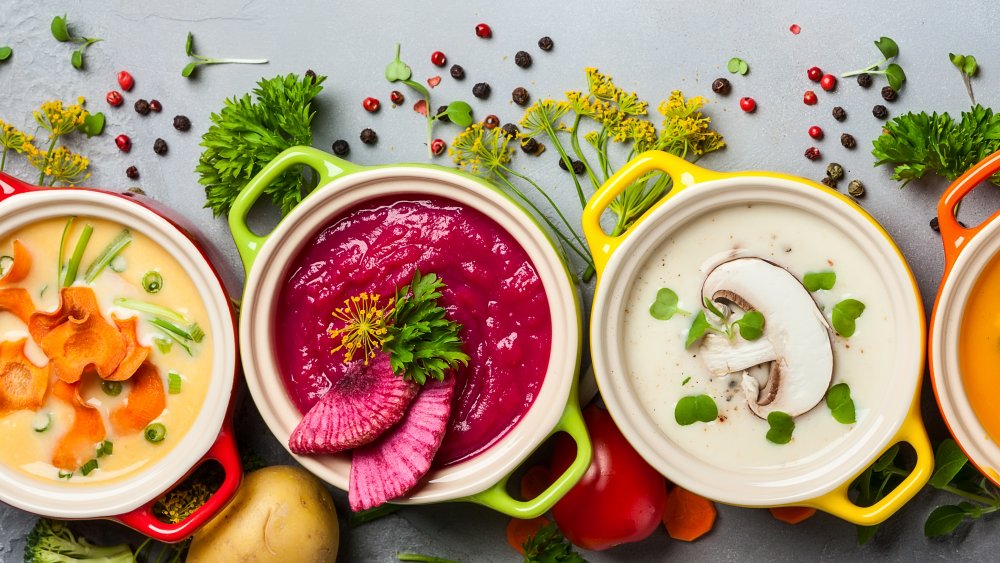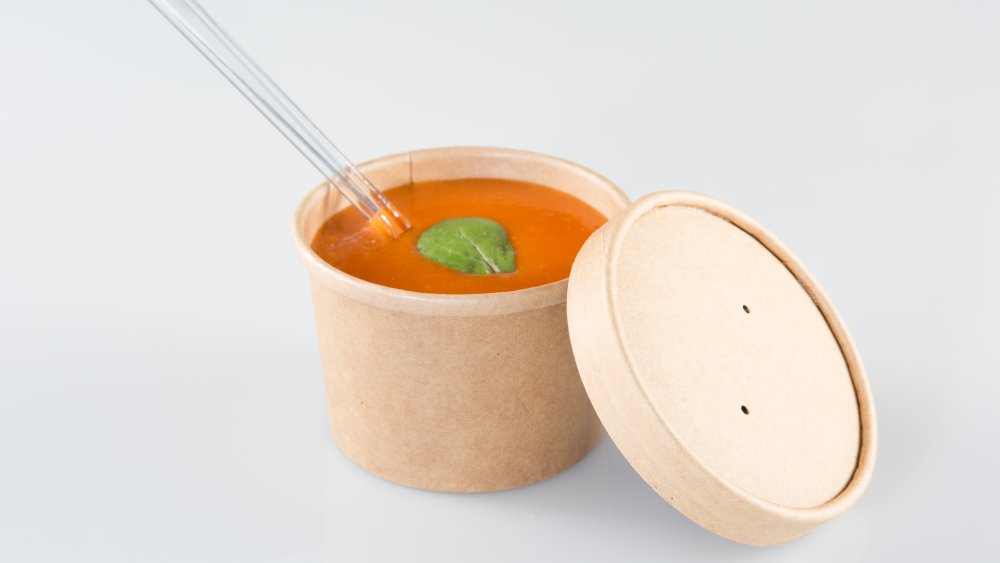This Is Why You Should Never Order Soup For Delivery
Fall is the season of pumpkin spice, roasted root vegetables, and warm soups ladled next to a plush throw and a good book. Soup can be a wonderful and healthy food choice when created from quality produce and health-boosting spices. Soup can be a decadent extravagance when adding whole creams and cheeses too. And while the choice of ingredients should be simple, there's one item you really don't want to add to your seasonal comfort food – BPA. So if you're thinking about having soup delivered to your door hot and ready-to-eat, don't.
"Soups should ideally not be ordered in since the high temperature and consistency of the soup make it a prime leaching of chemicals from the food containers," says NYC-based registered dietitian Jackie Arnett Elnahar RD, Esq. (via Eat This Not That). Elnahar elaborates: "Most restaurants do not use BPA-free or green products, so considering the food and food container is important." BPA stands for "bisphenol A," a chemical that has been added to plastics and resins since the 1960s (via Mayo Clinic). Think plastic water bottles and the linings in canned foods. BPA may pose a risk to the prostate glands and brains of developing fetuses and has the potential to change children's behavior. But with low exposure, it probably isn't a huge concern.
While a single takeout meal may not be a dealbreaker if you are concerned about risks from BPAs, here's some simple and handy advice.
Choose takeout with safe BPA-free packaging
One option is simply to make soup at home. Glass, porcelain, and stainless steel are much safer options for heating food. Avoid buying heated soups. The Mayo Clinic also advises reducing the use of canned foods, which have a history of being lined with BPA. If you are warming up leftovers, cold storage in a plastic container isn't as high risk as placing that container in a microwave and warming it up. Switch to a glass or ceramic bowl instead before reheating either store-bought or homemade soup.
Understandably, not all of us are home soup chefs, and sometimes it's easy to crave restaurant takeout (especially if you're avoiding dine-in service due to COVID). If you choose to order warm soup to-go, inquire about the restaurant's packaging options. In general, compostable containers will be the safest takeout option, like one made of completely recycled paperboard (via Because Health). Even then, try to avoid "healthier" containers that may include fluorinated chemicals – a common method for making paper resistant to liquid (like soup). Definitely also avoid styrofoam, as it's a type of plastic that takes ages to degrade. The best advice, however, is to order these hot to-go meals rarely and stick to healthier food items at home. Keep your soup takeout for a special treat.

